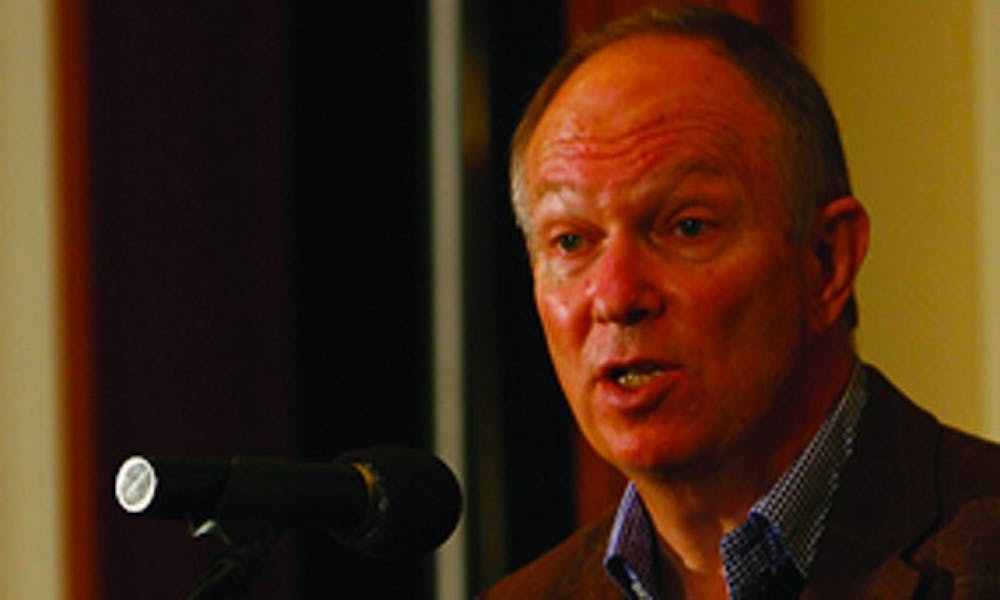In the years since 9/11, Muslim immigration to Europe has drawn great attention, much of it negative.
Ian Buruma, Henry R. Luce professor of democracy, human rights and journalism at Bard College, spoke Thursday about the perception that Europe is being taken over by Muslims. In a lecture titled “Eurabia: Truth or Paranoia,” he said the commonly held fear of a Muslim-dominated Europe involves worries about a demographic change, a clash of moral values and crime.
“One common thread is to conflate all these different threats and say that these are all threats that make up Islamic fascism,” he told a small crowd in the Sanford School of Public Policy’s Fleishman Commons.
Buruma said that although the threat of a significant rise in the Muslim population of Europe is not a valid concern, the clash between orthodox Islam and the values of a “modern European liberal democracy” may be a real issue.
Violence, ranging from street crime to terrorism, could pose a big problem, Buruma added, particularly if young people become involved in sometimes misguided religious quests.
“The reason I think young people everywhere are vulnerable to these violent ideologies is they don’t feel they belong in the only society they know well,” he said. “Jihad gives them a sense of power, of belonging, of identity.”
Buruma said the lack of separation between Muslims in general and a small subgroup of extremists is the biggest obstacle to defeating the fear of an impending Eurabia.
“I think the danger of conflation—this fear being stirred up of Muslims in Europe—the result will be we alienate the very people we need on our side to defend the values that people who warn us about Eurabia say they are defending,” he said.
Timur Kuran, Gorter Family chair in Islamic Studies and professor of economics and political science, said the lecture eloquently conveyed Buruma’s long-held views.
“It was a very nuanced talk—he acknowledged legitimate fears some people have of a subset of Muslims in Europe,” Kuran said. “At the same time, he recognized, correctly in my opinion, the danger is vastly overexaggerated. Muslims are assimilating, and they will assimilate more rapidly if they are accepted.”
Buruma, who was invited to speak for the 2009 Kenan Distinguished Lecture in Ethics, said he was pleased with the depth of the questions audience members posed after his speech.
Noah Pickus, Nannerl O. Keohane director of the Kenan Institute for Ethics, said Buruma’s speech was well received.
“At Kenan Institute, we believe that the issues of demographic change and the encounter between Islam and the United States and the United Kingdom are filled with deeply ethical concerns, and that they need to be carefully unpacked,” Pickus said. “Clearly there is no one better [to do so].”
Get The Chronicle straight to your inbox
Signup for our weekly newsletter. Cancel at any time.

